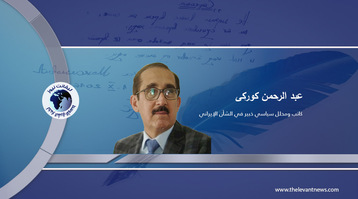-
Out of Afghanistan

President Biden announced the roadmap to ending America’s longest war this month by explaining that; “I am now the fourth United States president to preside over an American troop presence in Afghanistan. Two Republicans. Two Democrats. I will not pass this responsibility to a fifth.” Afghanistan
So, after twenty long and often bloody years the Afghanistan war, supposedly a conflict without end, will end with a White House pledge for a largely conditions-free US withdrawal by September 11 this year. Whilst no US solider has actually been killed in the conflict since February 2020, many thousands of Afghan soldiers, security forces and civilians have and reports suggest prior to the Biden announcement that the country has already seen the beginnings of an exodus of its political elite and civil society activists, journalists and intellectuals over the last year due to a targeted killing campaign that swept the country, largely unclaimed but widely attributed to the Taliban.
Historical parallels with the US withdrawal from Vietnam and the subsequent collapse of their allied Government in Saigon are already being drawn, less so ones with the Soviet decade long occupation of Afghanistan which saw some 10% of the population killed and a more humiliating withdrawal from what has been termed the ‘Graveyard of Empire’.
The US are clear as to their reasons as to wanting out. Their own public are beyond weary of the amount of blood and treasure that has been spent in the country. The world has changed too with Washington assessing a new array of challenges elsewhere. Justifying the planned withdrawal of all U.S. troops from Afghanistan by Sept.11, Secretary of State Blinken said that “the terrorism threat has moved to other places, and we have other very important items on our agenda, including the relationship with China.” Blinken didn’t mention the Russian build up of forces with the border with Ukraine but clearly the world is a very different place to 2001.
US forces departing is also the signal for other NATO countries to remove their forces. A statement from the alliance explained that “we will start the withdrawal of Resolute Support Mission forces by May 1. NATO has consistently held to the position of “in together, out together”. Yet significant questions remain as to the future of US support to the beleaguered Government in Kabul and to Afghanistan in general as a strategic priority. Bilateral aid and development funding is one metric to watch, another is the amount of investment Washington puts into pressuring the neighbourhood – especially Pakistan – to support a peaceful intra-Afghan political process.
The spectre of a future civil war and return to the chaos of previous years is at the forefront of many Afghans minds. Yet observers argue that the country is significantly different, has a different level of civil society and even has a different Taliban. The group that was previously famous for its sports stadium executions and general brutality now apparently allows girls to attend schools in areas of its control and sees itself as more of a mainstream actor.
However, the original US deadline for withdrawal, negotiated by President Trump, was by the start of May and it will be interesting to see if the Taliban agree to the new timeline or choose to target US forces in the interim. White House national security adviser Jake Sullivan said: “it is time for American troops to come home and the Afghan people to step up to defend their own country.” The decision comes a month after U.S. Secretary of State Antony Blinken looked to jump-start the moribund intra-Afghan peace talks in Doha, Qatar with a sweeping set of proposals.
More active mediation by the United Nations and pressure from regional countries to condition future cooperation on responsible negotiations may help to keep the Taliban and the Afghan government at the table. This is a key test for the US as a diplomatic superpower. Can it invest in peace between the factions and powers in Afghanistan in the same way it was able to act as a driver of conflict?
Being a diplomatic superpower lacks the quantitative ‘hard edge’ of having military prowess. We all know the US defence budget is the largest in human history and that they possess more ships, plans and soldiers than any military before them. Yet these assets weren’t able to being them to a clear point of departure from Afghanistan. Now diplomats and their soft power have been handed the problem and the potential to help chart a brighter future for the people of Afghanistan. Afghanistan
by: James Denselow levant

You May Also Like
Popular Posts
Caricature
Syrians' concerns now
- December 10, 2024
Syrians' concerns now #Syria
#Bashar_al-Assad
#Liberation_of_Syria
#Syrians
#Future_of_Syria
#Levant_News

opinion
Report
ads
Newsletter
Subscribe to our mailing list to get the new updates!



















